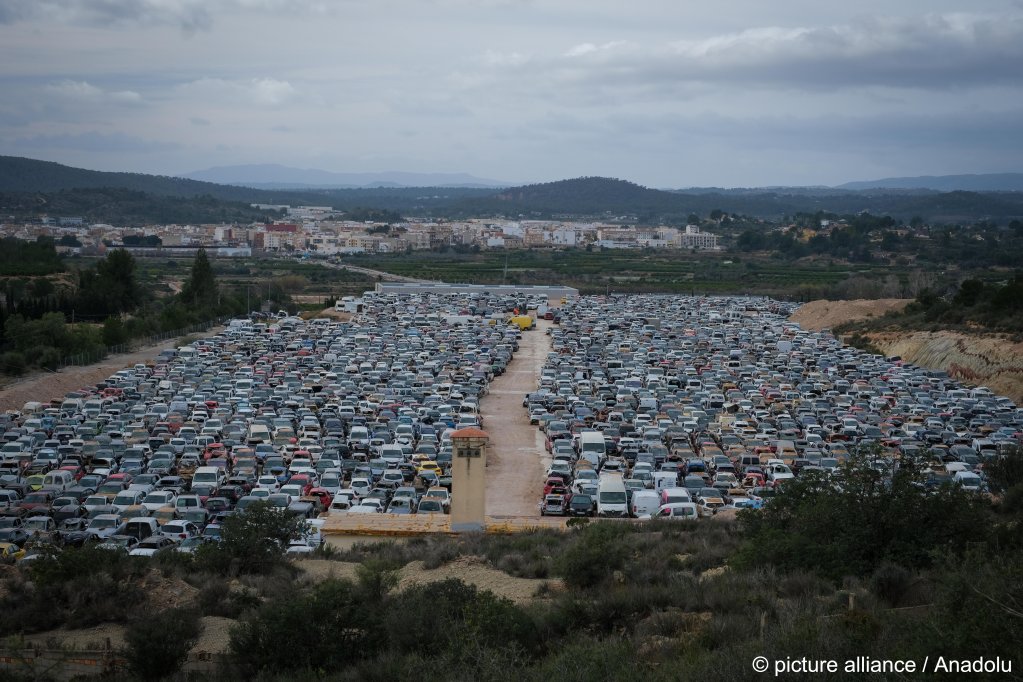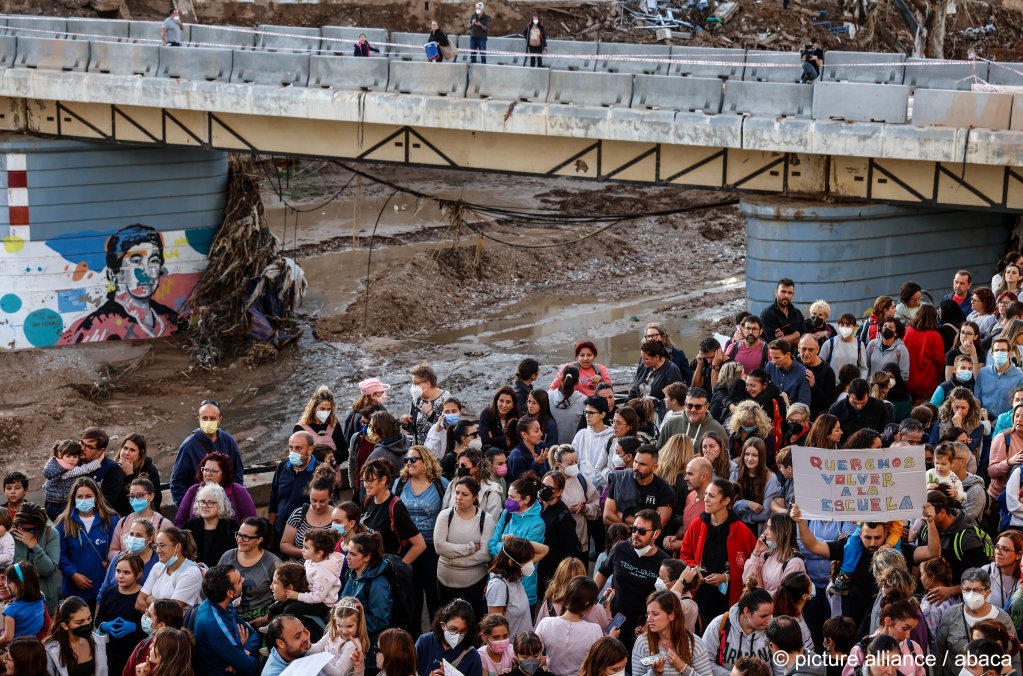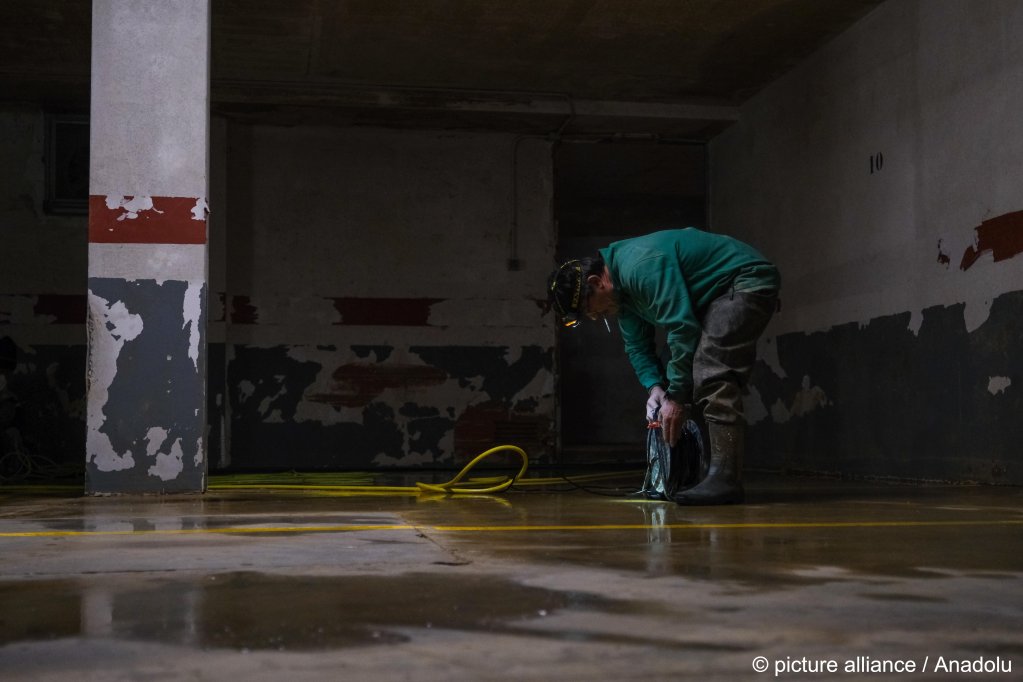The Spanish government will grant one-year residency and work permits to thousands of foreigners affected by the devastating floods that hit the Valencia region of the country last October. Local authorities hope the migrants will support the reconstruction process.
Undocumented migrants in Spain who were negatively affected by last year's catastrophic flash floods in Spain will receive one-year residence and work permits.
That's according to a statement by Spain's leftist government from Tuesday (February 11), news agency AFP and others reported on the same day; Spanish daily El País first broke the news on Monday.
The government reportedly expects the measures to benefit at least 25,000 people.
Approved by Spain's cabinet, the move is part of the government's recovery response to the October 2024 disaster that killed over 200 people and destroyed much of the EU country's eastern Valencia region.
The ensuing chaos left many immigrants unable to meet the requirements for living, studying and working in Spain legally, news agency AP reported citing the same ministry. Many employers have moreover been unable to satisfy the requirements to hire foreign workers.
According to AFP citing a statement by the migration ministry, the one-year permits will be granted due to the "exceptional circumstances" undocumented migrants faced during Spain's worst floods in decades.
The permits can be renewed through regular channels after they expire, AFP reported.
What's more, foreigners whose family members died in the floods will be given five-year residency; and those who were living legally in the affected area can request that their residency permits be automatically renewed, according to AFP.
If there are concerns over public order, security or health, however, permits can reportedly be denied.
The October 29 floods caused extensive damage in about 80 cities and claimed at least 227 lives nationwide. Most victims were found in the Valencia region, which is an industrial and agricultural powerhouse.
Read AlsoSpain: A young asylum seeker emerges as a hero amidst torrential floods
Migrants welcomed for reconstruction
Retired General Francisco Jose Gan Pampols, whom the regional government of Valencia tasked to lead the reconstruction effort, reportedly welcomed the measure.
According to AFP, he said that many companies in the affected area struggled to find workers.
"If these people can carry out any of the many jobs that need doing in the region, they are more than welcome," he told reporters.
Unlike most other European countries, Spain's socialist government under Prime Minister Pedro Sanchez has adopted an open and positive stance on migration. Spanish politicians argue the country needs immigrants to address labor shortages and the ageing population that could endanger pensions and the welfare state.
In November, Sanchez' government announced an immigration law reform that will regularize about 300,000 undocumented migrants per year through 2027. With an estimated 600,000 undocumented migrants, Spain has one of the highest rates in the EU.
At the same time, Spain recently struck partnerships with African countries to both address labor shortages and curb irregular migration to the Canary Islands. Last September, for instance, the government signed a number of agreements and Memorandums of Understanding (MoUs) with the (north)western African countries Gambia and Mauritania to establish a formal framework for circular migration.
The cooperation includes legalizing the status of immigrants already living in the country without permission, most of whom fly into Spain legally from Latin America and overstay their visas. Spain also has circular migration agreements with Morocco, Senegal, Colombia, Honduras, Ecuador, Argentina and Uruguay.
According to AP, foreigners currently represent some 16 percent of Spain's registered economically active population. Yet many more work in the underground economy as fruit pickers, house cleaners or care workers.
with AFP, AP



